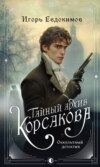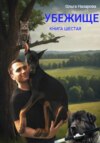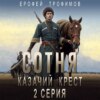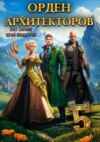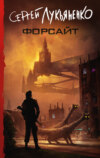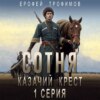Читать книгу: «Camp Venture: A Story of the Virginia Mountains», страница 6
CHAPTER XII
A Midnight Alarm
When the boys were well under way with the business of eating dinner, they again asked Tom to tell them the nature of his "negotiation" with the moonshiner.
"Well, I'll tell you what he said and what he demanded and what answer I made. But you must bear in mind that what he said may not have been true, and what he demanded may not have been what he really wanted. You see, I had 'got the drap' on him and naturally he made his explanations as plausible and his demands as small as he could. I had caught him creeping up with a cocked gun in his hand, evidently to take a shot at some one of you fellows, meaning, when the murder was done, to slip back over the rocks yonder without being seen or recognized by anybody. Thanks to the cat that scratched me, I was here to head him off in that. Then he pretended only to want us to remove our chute. I suppose that was a fetch, just to secure a way of escape from the awkward position in which I and your splendid rifle, Doctor, had placed him. They may have a still down there in the line of the chute, or they may not. But they have a still and perhaps several of them somewhere about here and so they are determined to drive us down the mountain. That, at least, is my reading of the riddle."
"It is pretty certainly correct," said Jack, after thinking for a moment. "At any rate that's the understanding upon which we must base our proceedings. We must not for one moment relax our vigilance; we must not be caught napping; we mustn't let any of those people 'git the drap' on us. They have declared war on us, and we must defend ourselves at every point."
The dinner was eaten in doors by all except Harry Ridsdale, who sat outside acting as a sentinel, and took his dinner on a log. After dinner, and again the next morning, Tom volunteered to act as sentinel, inasmuch as the Doctor would not yet let him chop, or hew ties, or lift logs, or do any other work that might reopen his now nearly healed wounds.
Promptly at five minutes after three o'clock on Tuesday afternoon, the first product of their industry was sent thundering down the chute. It was a huge timber thirty feet long and full two and a half feet thick at its smaller end. Jack had cut it at a point very near the mouth of the chute, and by united efforts, with handspikes and the slope of the hill to assist them, the company had rolled it into place.
Jack took out his watch and observed the time carefully.
"Three o'clock was the time agreed upon with the railroad people for having everything clear down there in the valley," he said, "but according to railroad usage we'll allow five minutes for variation of watches."
When the time was fully up the boys at the forward end of the great timber withdrew the handspikes with which they had been holding it securely in place. At the same time those at the rear end of it gave it a push with their handspikes. The log slid slowly into the chute, then with a grinding noise slipped rapidly through it, gave a great leap, and went careering down the precipitous hill, making a noise as of thunder.
Tom, with the Doctor's rifle over his shoulder – for he was acting as sentinel – had come to observe this splendid beginning of their winter's work. As the great timber bounded down the hill, and an echo of its final fall came back to announce its arrival at its destination, Tom quietly remarked:
"There may have been a distillery in the path of that log yesterday, but I wouldn't give much for the remains of it now."
"No," said Jack, "but there's money in that stick of wood. We must send down as many such as we can, and what remains of the tree from which I cut it will make many railroad ties and a lot of cordwood."
Then Jack examined the chute to see what effect the passage of the great timber had produced upon it. He found that pretty nearly all the bark had been stripped off the poles of which the chute was made. That was an advantage, inasmuch as it rendered the chute smoother for the passage of lighter timbers, which would presently render its surfaces glass-like in their polish. On the other hand the great timber in its passage had done no harm of any kind to the structure.
"That's a tribute, Jack," said Ed, "to your skill and the Doctor's, as engineers. For if that great stick didn't break any of your poles or twist any of the posts on which they rest, nothing else that we shall send down the hill will. I call it good construction, when a chute made of such stuff as you have used, carries such a weight as that without giving way anywhere."
"Yes," answered Jim Chenowith, "and, of course, the strain on the chute will never be so great again, now that the bark has been stripped off its poles. It must have been a tremendous trial when that big log slid down, resting so heavily on the poles as to strip off every particle of bark that it touched!"
"Thanks for your compliments, boys," said Jack, "but now we've got to set ourselves to work. Between now and six o'clock we've got to send down all the ties that we've got ready, and all the cordwood besides. So quit talking and come on."
It was hard work. The railroad ties were so heavy that it required two boys to each to handle them comfortably, and the supply of cordwood was large enough to tax all the industry of the camp to complete the work before six.
In the meantime Tom had gone to the cabin to prepare supper, keeping up his sharp lookout all the while.
After supper had been disposed of, Tom quietly took his own double-barreled shot gun, slipped a charge of buckshot into each of its chambers, belted a loaded cartridge holder round his waist, and went out "just to look around," he said. Tom was so given to this sort of prowling, both by day and by night, that none of the boys attached any importance to his present movements. Had they thought anything at all about it, they would have felt certain that little Tom had gone out only to stroll around the outskirts of the camp, as it was his habit to do.
Instead of that, however, he walked straight to the chute and presently clambered over the edge of the cliff, and by holding to bushes dropped to a ledge below. Thence, he had a very precipitous but practicable path before him for at least half way down the mountain.
Hard working and early rising as the boys were, they enjoyed their evenings in front of the great fireplace in their hut, and usually they did not go to bed till ten o'clock. This gave them three or four hours of enjoyable fireside conversation, and, as they arose sharply at six in the morning during these short days it left them eight hours for sleep, and that is quite enough for any well man, however hard he may have worked in the open air during the day.
But when bedtime came and little Tom did not reappear, they all began to feel uneasiness. Still, it was well understood in the camp that "Little Tom knows how to take care of himself," and so one by one the boys went to bed, all but the sentinel.
About midnight, Jim Chenowith, who had been on guard, came into the hut and aroused his comrades.
"I say, fellows," he said, in a deprecative voice, "I hate to disturb you, but I'm getting uneasy about Tom. It's twelve o'clock now, and he hasn't returned to the camp."
Instantly the entire party sprang out of bed and each began to slip into his clothes.
"We must build a bonfire," said the Doctor, as a first suggestion. "You see, Tom may have lost his way, and it isn't easy to find one's way about in these mountains of a dark night. If we build a bonfire, he will be able to locate the camp. If anything worse has happened to the boy, why we will – "
The Doctor did not complete his sentence, but the other boys understood, and with one voice they answered in boy vernacular: "You bet we will!"
CHAPTER XIII
A Night of Searching
The bonfire was quickly built and stout, willing hands piled upon it the brush left over from their chopping till the blaze of it rose thirty feet into the air, illuminating the entire mountain side.
So far as anybody could plan there was nothing else to be done while the night lasted, except scour the woodlands and thickets round about, hallooing now and then; but nothing that the boys could do produced any result. Hour after hour passed and still Tom did not appear.
"It would be useless," said Jack, "to go off into the darkness to look for him. We simply must wait for daylight, particularly as we don't know what direction he took. Possibly by daylight we may track him. But unfortunately there is no snow on the ground."
"Unfortunately there will be snow on the ground before daylight comes," said the Doctor, who had conceived a great affection for little Tom, "and it will obliterate whatever tracks the boy may have made. All the indications are for snow, and indeed it is beginning to snow now. I tell you, boys, we must make some torches and study the ground by their light. Perhaps we may find Tom's tracks before the snow covers them."
The suggestion was no sooner made than it was carried out, and by the light of great, flaring torches the whole party minutely scanned the ground, beginning at the cabin door, and prosecuting their researches in every direction.
After an hour of this work, the Doctor called out from a point near the chute:
"Come here, boys!" and when they came he said:
"Tom went over the bank at this point. See! Here are his tracks in the soft earth, and look! There are the bent and broken bushes by which he let himself down over that cliff. Thank heaven we know now in what direction to look for him as soon as morning comes. It would be useless suicide to attempt to follow his trail now."
"Well, I don't know," said Jack. "But I'm ready for that sort of suicide in behalf of little Tom. Give me your best torch, boys! I'm going to follow the trail down the mountain. You see Tom may have slipped off a cliff somewhere down there and broken his legs or rendered himself helpless in some other way. I'm going to follow him right now, and the rest of you can come after daylight – which isn't more than half an hour off now."
"No!" said the Doctor. "If you think best to follow the trail now, we're going with you, every one of us. But first let us get our guns and some necessaries. If Tom is hurt anywhere down there I must have some appliances with which to dress his wounds. If he has fallen into the hands of the moonshiners we must rescue him, and to that end we must have guns and ammunition. Let us go over his trail by all means, but let us go prepared to do him some good when we find him!"
To this thought there was unanimous assent, and instantly the Doctor and Jim Chenowith hurried back to the house to bring surgical appliances, guns and ammunition. Meantime Jack, who was greatly excited turned to the two boys who remained with him, and said, in a voice so cold and calm that they knew it meant intense emotion —
"Boys! If the moonshiners have caught little Tom and done any harm to him, I am going to drive every moonshiner out of these mountains and into a penitentiary or better still to a gibbet, if I have to give my whole life to it. Will you join me in that? And if I get killed will you promise to go on with the work?"
By that time the others had returned, and they had caught enough of what Jack had said to understand its purport. For answer the Doctor grasped Jack's hand and said with emotion: "To that purpose I pledge my whole life and all of my fortune! If those beasts have dealt foully with little Tom, I'll hire and bring here from Baltimore a hundred desperately courageous men, every one of them armed with the latest magazine rifle there is and commissioned by the revenue chief, and I pledge you my honor that when I am through with the job there will not be a moonshiner left in these mountains! I'll do that, Jack, if I have to hang for it."
The other boys responded with enthusiasm, "We'll be with you in that job, Doctor, without any hiring!"
"Thank you, comrades!" That was all that Jack could say before the strain upon him overcame even his iron nerves, and for a moment he lost consciousness. It was only for a moment, however. At the end of that time Jack led the way over the cliff, five torches lighting the journey. Presently daylight came, and the torches were thrown away.
The trail that Tom had made of broken bushes, cliff growing saplings, bent down in letting himself drop over bluffs and declivities, and boot marks where he had scrambled over a ledge, was not very difficult to follow for a space. But then came a long stretch of shelving rock entirely bare, with a dense forest growth beyond, where the leaves that had fallen in the autumn were still a foot deep, and beyond that point it was impossible to trace Tom's course. After earnest endeavors to recover the trail, the effort was abandoned, and sadly the little company made their way back to camp by a circuitous route, for they could not climb again the cliffs over which they had managed to clamber down.
On the way back they were encouraged by the hope that they might find Tom in the camp, when they got there, but in this they were disappointed.
They were all disposed to sit down and mourn dejectedly, but at that point the Doctor's scientific knowledge came to the rescue.
"See here, boys," he said; "we've got some strenuous work to do for Tom's rescue, and we must do some clear and earnest thinking before we begin it, in order that we may do it in the best way. We're exhausted. We have passed a night with only two hours or less of sleep, and we've eaten nothing for fifteen hours, for it's now after nine o'clock. In the meantime we have made a tiresome journey down the mountain and back again and worse still – for worry is always more wearing than work – we have undergone a great stress of anxiety. Now we're going to do all that human endeavor can do to rescue Tom. To that end we must have strength in our bodies and alertness in our minds. We must have breakfast at once and a hearty breakfast at that."
None of the boys had an appetite, but the Doctor insisted and presently there was a breakfast served, consisting of bacon, cut into paper-thin slices and broiled on the sharpened point of a stick, held in a blaze from the fire; corn pones baked to a crisp brown in a skillet, and a brimming pot of hot and strong coffee. For butter on their bread, the boys had a mixture of the drippings from their recent roasts – the venison, the wild boar, the rabbits and the rest – all of which drippings they had carefully saved for that purpose.
Appetizing as such a breakfast was to hardworking, sleep-losing and exhausted boys, not one of them felt the least relish for it. It required all of the Doctor's urging to make them even taste their food, till presently Harry, who stood outside as a sentinel, threw down his gun and started away at a break-neck pace, calling out at the top of his voice as he went:
"There's Tom! There's Tom! There's Tom, and he's all right!"
With that the whole company abandoned breakfast and rushed out to greet the returning boy. They plied and bombarded him with questions, of course, until at last he said pleadingly:
"Please, boys, I'm awfully hungry and tired. I'll answer all your questions after awhile. Just now the only things you really want to know are that I'm back safe and sound, and that nothing worse has happened to me than the loss of a night's sleep, a good deal of anxiety about you fellows, and the getting up of a positively famished appetite. I say," he added, as he entered the cabin, "who broiled that bacon?" and as he asked the question he picked up two or three slices of it and thrust them one after another into his mouth.
"I did," answered Ed, "and now that you're back, Tom, I'm going to eat a lot of it too."
"Well cut three or four times as much more of it," Tom said, slipping still another slice of the dainty between his teeth, and following it with a mouthful of corn pone, "and I'll help you toast it. But don't let's talk till we eat something to talk on."
Ed quickly cut a great plateful of the bacon slices, and every boy in the party except the one on guard duty, sharpened a stick and helped in the broiling.
Tom had brought their appetites back with him.
CHAPTER XIV
Tom Gives an Account of Himself
"Now first of all," said Tom, when breakfast was over and the boys again began questioning him as to his night's adventure, – "first of all if I ever disappear again you're not any of you to worry about me. You all say that 'little Tom knows how to take care of himself,' and I believe I do, particularly when I have a double-barrelled shotgun with me and forty cartridges loaded with buckshot in my belt.
"Now to explain. I was curious to find out how far the moonshiner who 'negotiated' with me at the muzzle of your magazine rifle, Doctor, was telling the truth, and how far he was lying. So I made up my mind to climb down the mountain, following the line of our chute, and find out whether or not that big timber had made a wreck of an illicit still down there. Of course it hadn't. That was only an 'explanation' invented by the fellow for immediate use, when he was caught sneaking up here to shoot some of us. His sole purpose was to drive us 'out'n the mountings' as these people put it. His plan was to sneak up here behind the house and shoot some one or other of us, and thus compel us to 'git down out'n the mountings.' He thought we'd all be out there chopping and that after dropping one of us he could slip away unseen and of course unrecognized. He thought that then we'd quit. He didn't know that that cat had scratched me so badly that the Doctor had condemned me to stay here at the house, and so he was taken completely by surprise when I levelled that repeating rifle at him, at less than six paces distance. So he resorted to humanity's last resource, lying. I remember reading in a book somewhere that Queen Elizabeth said that 'a lie is an intellectual way of meeting a difficulty.' Well that fellow was very intellectual. He lied 'to the queen's taste' – even Queen Elizabeth's taste. He told me that he had come up here to ask us fellows to change the direction of our chute, lest it demolish his still down there – though of course he didn't admit that it was a still. I wanted to find out about that and so I slipped away and climbed down the mountain. I found the still all right – indeed I found three of them – on my mother's land, but there isn't one of them in the line of our chute or within a quarter of a mile of it. All that was a fable made up to cover the moonshiner's murderous mission.
"Well when I found the stills in full blast I made up my mind to watch their operations for a time. I was securely ensconced upon a ledge which I thought inaccessible from below, but it wasn't. For presently those fellows threw out their pickets, and one of them climbed up to my particular ledge, to keep 'watch and ward' there. There were only two things for me to do. Either I must shoot the fellow and take my chances of running away over a difficult track with which the moonshiners were familiar while I was not, or I must crouch away somewhere where the moonshining picket was not likely to see me.
"As the more prudent of the two courses open to me, I chose the latter. There was a sort of half cave there, a crevice in the rocks, and I crawled into that, and there I stayed all night, with my gun at full cock and with Little Tom every instant on the alert. My plan was to keep myself hidden as long as I could, and if discovered to get in the first shot, and then run as fast as I could. Fortunately I was not discovered, and about half past six o'clock the stills ceased operations and the pickets were called in. Then I made my way around the side of the mountain and got back to camp.
"There, that's the whole story of Little Tom's night adventure. Now let's get to work at our chopping, for I am well enough now to do my share and I hereby declare my independence of the Doctor."
"That's all right," said the Doctor, "but if you break open any of those wounds, I'll order you to bed again."
"But wait awhile," interposed Jack. "There's something serious in all this. Obviously these people don't intend to make open war upon us. Their plan is to sneak upon us and now and then to shoot one of us from some hiding place, in order to drive us out of the mountains. Now we've got to look out for that. We can do it in two ways. First we can send a slab down the chute with a message in it asking our friends down below to send up the revenue officers and a company of soldiers to arrest all these men, telling the revenue people that we'll show them the stills and the men. In other words we can 'carry the war into Africa' as the Romans did, and put these fellows on the defensive instead of ourselves standing in that position. Or, if we don't care to do that – and there are reasons against it – "
"What are the reasons against it?" asked Little Tom, whose disposition it was always to take the offensive in a righteous controversy.
"Well, not more than a dozen or twenty of these mountaineers are actively engaged in this illicit distilling business, but all the rest of the mountaineers are their friends and most of them are their relatives, for these mountaineers have intermarried until almost every one of them is the near kinsman of all the rest. Now if we call in the assistance of the revenue officers and the troops behind them, the best that we can hope for is to put a dozen or so of them into jail, while possibly two or three of them will be shot in the mélee. That will leave the rest of them to make war upon us, with the assistance of all the men of the mountains."
"Well what's the other plan," asked Tom, who very reluctantly gave up the idea of aggressive fighting.
"We must so place a sentinel every day that no man can come within rifle range of us without being discovered and stopped – with a bullet if necessary. Fortunately our camp is so placed that there are only two points at which it can be reached, and fortunately again there is one sheltered point – out there under the cliff – from which a sentinel can see anybody approaching by either of the only two roads that lead into our camp. My plan is to keep a sentinel always under the cliff out there."
Jack had so thoroughly thought the matter out that it needed no discussion. His plan was instantly adopted, one boy was sent to the sentry's post under the cliff, and the rest made a late beginning of the day's work of wood chopping.








